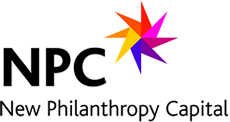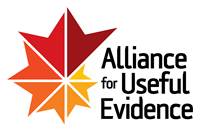This report by John Copps and Dawn Plimmer for Inspiring Impact addresses the issue of youth unemployment. It helps organisations that work with young people understand and measure the impact they have on the journey to employment.
It features the Journey to EmploymenT (JET) framework.
These documents explain the relationship between Social Return on Investment (SROI) and 1) Social Accounting and Audit (SAA), 2) GIIRS Ratings & Analytics (“GIIRS” stands for the Global Impact Investing Ratings System) a comprehensive, comparable, and transparent system for assessing the social and environmental impact of companies and funds with a ratings and analytics approach analogous to Morningstar investment rankings, and 3) IRIS (Impact Reporting and Investment Standards) standardized performance indicators to help an organization understand its impact in a credible and comparable way.
This paper, by Andrea Westall for NAVCA’s Local Commissioning and Procurement Unit, provides an overview of the different tools and approaches that are being used and developed for measuring and evidencing how charities and community
groups create social value, and discusses the implications for these organisations.
The Good Analyst’s Dictionary of Indicators is a resource primarily for social-purpose organisations looking to develop their own impact measurement capabilities. It accompanies the Guidelines for How to Measure and Report Social Impact. While the Guidelines lay out a framework for building an impact measurement system, the Dictionary provides a supporting reference tool for the specific task of choosing indicators.
To provide a model of IRIS adoption by impact investors, the KL Felicitas (KLF) Foundation and the Global Impact Investing Network jointly released this case study which explains KLF’s motivation for IRIS adoption and details the Foundation’s application of IRIS across its active investment portfolio.
The good evaluation of a project or a policy needs on the one hand thorough application of methodology up to the highest professional standards and is on the other hand a creative thought exercise: what do we really want to know and how to find out.
This resource provides information on the methodologies behind how the European Commission (EC) evaluates their projects or policies. It includes:
- Evaluation guides: for the geographical and thematic evaluations, for evaluation managers or evaluators and for project and programme evaluations, including checklists
- Methodological bases: subject, timing, utilisation, roles, method
- Tools: to structure an evaluation, to collect and analyse data, to assist the formulation of judgements
- Impact diagrams/indicators: a set of intervention logics, outlining key chains of results and a menu of example indicators for some key EC intervention sectors
- Overall assessment: the development of these documents has been accompanied by a group of international evaluation experts.
The Global Value Exchange is an open source database of Values, Outcomes, Indicators and Stakeholders. It provides a free platform for information to be shared enabling greater consistency and transparency in measuring social & environmental values. The site empowers users by giving them a voice to share their experiences and allow them to become the ‘creators of knowledge’.
The outcomes matrix is a tool to help social investment financial intermediaries (SIFI’s) and social sector organisations to plan, measure and learn about their social impact. It aims to develop common ground and language for social investment and impact assessment in the social sector. The outcomes and measures are not intended to be prescriptive or exhaustive but should provide a helpful starting point for organisations to consider their social impact.
MEASURING NATIONAL PROGRESS – To truly advance social progress, we must learn to measure it, comprehensively and rigorously. The Social Progress Index from Social Progress Imperative offers a rich framework for measuring the multiple dimensions of social progress, benchmarking success, and catalyzing greater human wellbeing. The 2014 version of the Social Progress Index has improved upon the 2013 ‘beta’ version through generous feedback from many observers.
This working paper, by Julian Cox, Matt Bowen and Oliver Kempton for New Economy, documents and discusses research work being carried out in Greater Manchester to understand and identify if it is possible to robustly value social outcomes. The research has focused on the ongoing Community Budget programmes across Greater Manchester. The paper presents a methodology for valuing social outcomes and suggests how such an approach can be used and taken forward by practitioners, commissioners, analysts and suppliers of programmes across Greater Manchester.





